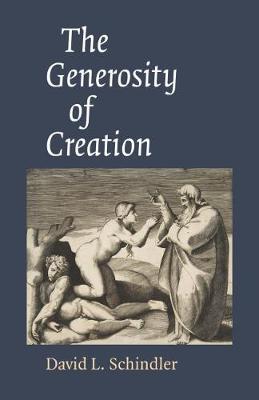Referring to creation as generous is not common. We normally associate notions of generosity and gift in the created order with human being and action, imputing such notions to other creatures and the whole of creation often only in a ""poetic"" sense. Once we center the reality of all things in God as a loving Creator, however, we become disposed to see everything, in its very givenness, as gift?a reality that participates from its depths, in analogical ways, in God's generosity, such as to make possible a deepened look also at the problem of evil.
The Generosity of Creation has a twofold purpose in this light. The four chapters of Part I spell out what this God-centeredness implies for our understanding of the cosmos in various contexts: first, the ""paradigmatic"" meaning of the child and childlikeness for a civilization rightly ordered in terms of gift; second, ecology considered in terms of a ""liberation theology"" guided by ""integral human development""; third, the unity between ""ideas"" and ""reality"" as a necessary condition for ""preserving nature as the pre-sacrament, and the Church as the sacrament, of the Word of God's Love""; fourth, human freedom conceived primarily as a response to the good and a desire for God, in contrast to the would-be neutral or indifferent freedom characteristic of liberal societies.
Part II explores the metaphysical foundations for speaking of creatures as ""generous"": gifts from God that participate, each according to its own nature, in God's giving. The exploration unfolds in dialogue with theologian Michael Waldstein, in relation to the anthropology of John Paul II and the metaphysics of Thomas Aquinas.
- ISBN13 9781948195027
- Publish Date 5 December 2018
- Publish Status Active
- Publish Country US
- Imprint Humanum Academic Press
- Format Paperback
- Pages 277
- Language English
